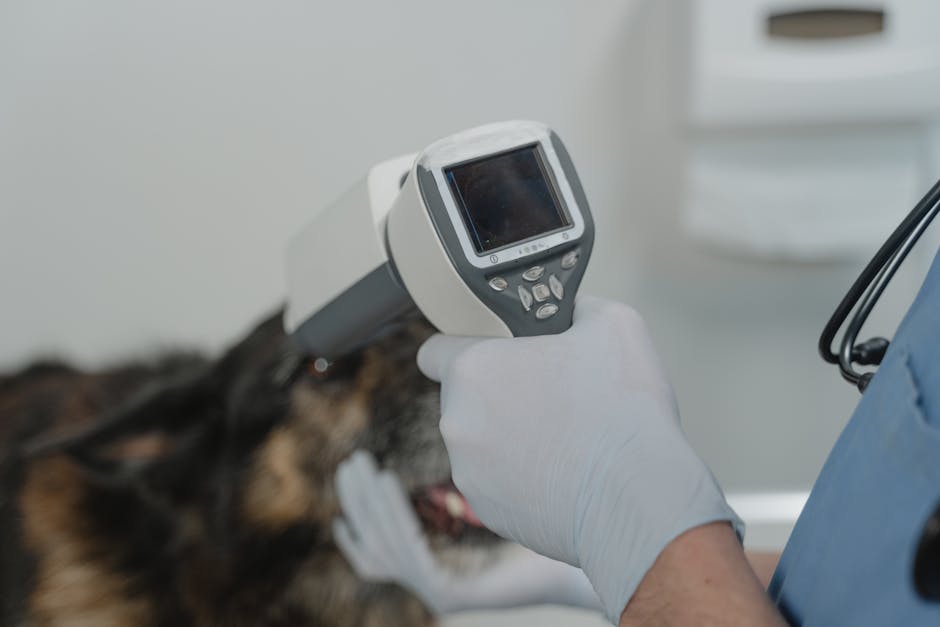Owning a pet is a joyous experience, filled with unconditional love and companionship. However, maintaining your furry, feathered, or scaled friend’s well-being requires proactive measures to safeguard their health. A significant aspect of responsible pet ownership is disease prevention, a crucial element in ensuring a long, happy life for your animal companion. This comprehensive guide explores various strategies for warding off prevalent pet ailments, from vaccinations to dietary considerations.
Understanding Pet Health Vulnerabilities
Before diving into prevention tactics, it’s essential to recognize the types of diseases that commonly affect pets. Predispositions vary considerably depending on species, age, and breed. Puppies and kittens, for instance, are particularly susceptible to certain infections, while older pets may experience age-related conditions. Further, some breeds are genetically prone to specific illnesses. A thorough understanding of these vulnerabilities empowers pet owners to adopt preventive measures tailored to their specific animal’s needs.
Vaccination Protocols: A Cornerstone of Prevention
A robust vaccination schedule is undoubtedly one of the most important tools available to pet owners. Vaccines, meticulously developed, provide immunity against a range of infectious diseases that can cause severe illness or even death. These preventative measures safeguard your pet from pathogens like canine distemper, rabies, and feline leukemia. Consult your veterinarian to establish a vaccination plan aligned with your pet’s age, lifestyle, and location. Remember that booster shots are often essential to maintain ongoing immunity. Furthermore, some vaccines might be recommended based on the pet’s environment, like those for Lyme disease in certain geographic areas.
Nutritional Excellence: Fueling Health and Immunity
A balanced diet forms the bedrock of a pet’s health. Suboptimal nutrition can compromise the immune system, leaving animals vulnerable to various ailments. Selecting high-quality pet food tailored to your pet’s specific age and breed is crucial. A diet rich in essential nutrients, including proteins, carbohydrates, fats, vitamins, and minerals, supports healthy growth, a strong immune response, and overall well-being. Avoid feeding table scraps, as these can lead to imbalances and health problems. Consider consulting a veterinary nutritionist for tailored dietary recommendations.
Environmental Considerations: Safeguarding against External Threats
Pet owners must also recognize the environmental factors that contribute to illness. Exposure to parasites, such as fleas, ticks, and heartworms, is a significant concern. Regular parasite prevention measures, including topical treatments and oral medications, are essential for maintaining a healthy environment. Ensuring access to clean water and a hygienic living space plays a crucial role in preventing a range of infectious diseases. Maintaining appropriate temperatures, avoiding extreme heat or cold, and providing adequate shelter are also part of this strategy.
Hygiene Practices: Maintaining a Healthy Living Environment
Maintaining appropriate hygiene is imperative. Regular grooming, including brushing and bathing (as needed), helps remove dirt, debris, and parasites. This proactive step not only enhances your pet’s appearance but also helps maintain overall hygiene and prevents infections. Cleaning pet bedding and toys regularly is critical in preventing the proliferation of germs and keeping your pet’s living area clean and safe.
Regular Veterinary Check-ups: Proactive Health Monitoring
Routine veterinary check-ups are essential for early detection of health issues. During these visits, your veterinarian can identify potential problems before they escalate into more serious conditions. These check-ups allow for vaccinations, parasite control, and identification of any underlying health issues. Early diagnosis and intervention are pivotal to successful treatment and recovery.
Genetic Predisposition: Addressing Breed-Specific Risks
Some breeds are predisposed to particular diseases. Be aware of the potential health concerns associated with your pet’s breed. This awareness can help you make proactive choices about their care, potentially lowering their risk of certain illnesses. For instance, some breeds are susceptible to hip dysplasia or certain heart conditions. A thorough understanding of genetic predispositions guides informed preventive care decisions.
Promoting Healthy Behaviors: Encouraging Active Lifestyles
Promoting a healthy lifestyle is paramount. Regular exercise strengthens their physical health and reduces the risk of obesity. Maintaining a healthy weight helps prevent numerous ailments associated with excess weight. Consistent exercise, combined with a well-balanced diet, plays a pivotal role in preventing many potential health concerns.
Recognising Stress and Anxiety: Emotional Well-being
Stress and anxiety can also negatively impact a pet’s overall health. A calm and stable environment minimizes the risk of stress-related illnesses and supports well-being. Providing consistent routines, enriching their environment, and engaging in positive interactions positively impact emotional stability, reducing susceptibility to stress-related diseases.
Conclusion:
Ultimately, safeguarding your pet’s health is a multifaceted approach requiring vigilance, knowledge, and proactive measures. By incorporating vaccination protocols, nutritional excellence, environmental considerations, hygiene practices, regular veterinary check-ups, and a keen awareness of breed-specific predispositions, you empower your animal companion to enjoy a long, happy, and healthy life. Remember that every pet is unique, and your veterinarian remains the best resource for tailored recommendations and preventive strategies. Your commitment to their well-being through these proactive measures not only enhances their quality of life but also enriches the bond you share.
